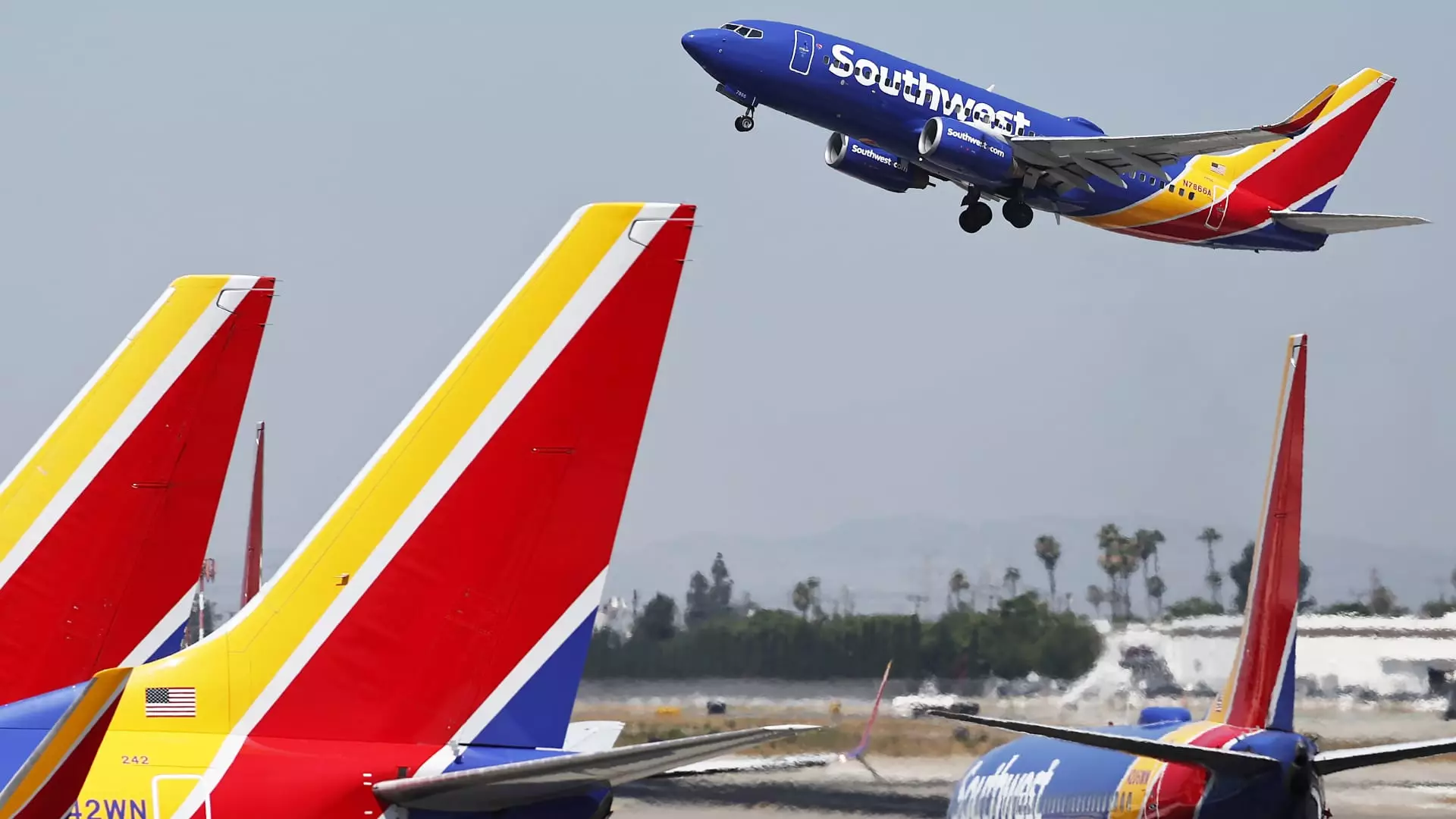Strategic Navigations: The Future of Southwest Airlines Amid Leadership Changes

Southwest Airlines finds itself at a crucial crossroads as it announces significant changes within its leadership team and board of directors. Executive Chairman Gary Kelly, a veteran of nearly 40 years, has confirmed his retirement for next year, a move that underscores the airline’s response to mounting pressure from activist investor Elliott Investment Management. This is not just a leadership transition; it signifies a broader reassessment of Southwest’s strategic direction amidst turbulence in the airline industry. Kelly’s assertion that “now is the time for change” resonates with a growing sentiment among stakeholders—change, however, should be meaningful and well-considered.
Elliott Investment Management, which recently acquired a substantial stake in Southwest valued at nearly $2 billion, has been vocal about the airline’s “stunning underperformance.” They have openly critiqued the current leadership structure and called for a thorough shake-up, pushing for the removal of CEO Bob Jordan and other key executives. The investor’s influence is already apparent, as Kelly’s retirement announcement followed a meeting with the firm, clearly indicating that the board is attuned to the demands of significant shareholders.
The impending retirement of six board members signals a major shift in the governance structure at Southwest Airlines. This unprecedented move will pave the way for the introduction of four independent directors, and Elliott’s involvement in candidate selection illustrates the depth of the current corporate transformation. While Kelly and the remaining board have expressed unanimous support for Jordan, this shows the potential for internal discord as Elliott’s insistence on change looms larger. As companies evolve, the dynamic between leadership and shareholders becomes crucial in maintaining organizational health and investor confidence.
The activist group’s stance is not just to criticize but to drive substantial changes that reflect modern business realities. They argue that the current leadership has not sufficiently adapted to evolving market demands, highlighting the airline’s struggle with an oversupplied domestic market and additional pressures from increased operational costs and aircraft delivery delays.
Historically, Southwest Airlines built its reputation on a straightforward and profitable business model that allowed it to thrive in a competitive landscape. However, this model may be increasingly difficult to sustain without meaningful adaptations. The announcement in July regarding the introduction of additional offerings, such as extra legroom and the dismantling of its long-entrenched open seating policy, marks a significant pivot for the airline. These shifts, the most significant in over 50 years, are a strategic response aimed at improving customer experience, which is critical in today’s service-focused economy.
Furthermore, the planned introduction of overnight “redeye” flights signifies another layer of adaptation in Southwest’s approach to meet traveler needs across various demographics. The airline’s strategy reflects an acknowledgment that comfort and flexibility are becoming paramount in passenger preferences, particularly as competition intensifies from both traditional carriers and budget airlines.
As part of its proactive measures, Southwest has scheduled an investor day to further explore its strategic initiatives and outline forthcoming operational shifts. This event is crucial not only for maintaining transparency with stakeholders but also for rebuilding confidence in Southwest’s strategic roadmap. It provides a platform for the airline to communicate how it plans to navigate through its current challenges while capitalizing on new market opportunities.
Southwest Airlines stands at a pivotal moment in its corporate journey. With leadership changes and strategic adaptations on the horizon, the carrier is navigating through an era marked by increased demands for corporate accountability and flexibility. While the influence of Elliott Investment Management may herald the onset of significant changes, the true test will be how effectively Southwest Airlines can reconcile its storied past with the innovative approaches necessary for future success. Embracing this transformation may well determine the airline’s trajectory in a rapidly evolving industry landscape.





